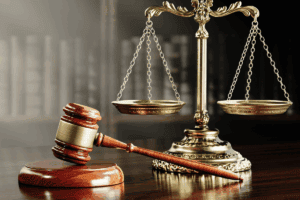Doctors Without Borders has described the situation as a crisis in this country, where 54 000 rape cases are reported annually.

In a country where 54 000 rape cases are reported annually, nearly half the facilities designated to care for survivors of sexual attacks do not offer counselling to child survivors, who potentially represent almost half of all survivors.
The report by Doctors Without Borders, titled Untreated Violence: Critical Gaps in Mental Healthcare for Survivors of Sexual Violence in South Africa, paints a bleak state of access to mental healthcare for survivors of sexual violence.
The report was released yesterday in Johannesburg.
The survey by the international medical humanitarian organisation also shockingly found that half of these dedicated health facilities offer no counselling services at all.
In a telephonic survey conducted nationally, 187 of 256 designated facilities suggest that the psychological consequence of rape, which includes post-traumatic stress disorder and depressive disorder were often going unassessed and untreated due to absent or insufficient services.
More than a third of the facilities did not provide risk assessment for suicide, 53 did not provide counselling for child victims, 25 of these facilities said they had no counsellors, while more than half did not offer counselling for victims of intimate partner violence.
Doctors Without Borders has described the situation as a crisis because survivors, unable to cope with the psychological scars of their attacks, ended up taking their own lives, or turning to drugs and alcohol as a coping mechanism.
Presenting the survey outcomes yesterday, project medical referent Dr Jan Krishna Rodriguez said although the survey was not exhaustive, observations indicated an urgent need to address gaps in the provision of psychological care for victims of sexual and gender-based violence.
“We know how rampant intimate partner violence is in the country, including the so-called ‘blesser and blessee’ relationship phenomenon,” said Rodriguez.
Nikita Ramkissoon, who was sexually abused at the age of nine and until she was 13, when she decided to tell her parents, said that sexual abuse was hardly perpetrated by strangers but the closest and trusted people to the victim.
“You learn to trust the people around you and you tend to see what is happening to you as normal, and it is difficult to admit that something like this was not okay,” she said. “You start feeling dirty, cannot approach parents because they will not believe you.”
Doctors Without Borders has pleaded with government to invest in the mental health of survivors and urgently ensure that these specialised facilities are capacitated to provide these services around the clock.
For more news your way, download The Citizen’s app for iOS and Android.






